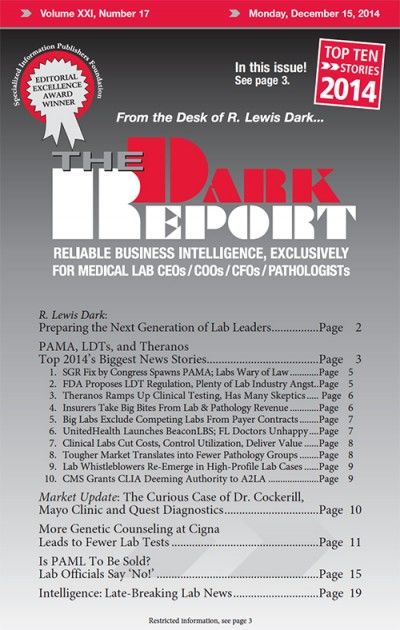CEO SUMMARY: It is one of the 10 largest lab companies in the United States. Thus, if Pathology Associates Medical Laboratories in Spokane, Washington, were to be sold, it would trigger a major shift in the competitive market for lab testing services-both in the Pacific Northwest and nationally. Owners and executives at PAML have neither confirmed nor denied the ongoing rumors […]
To access this post, you must purchase The Dark Report.


